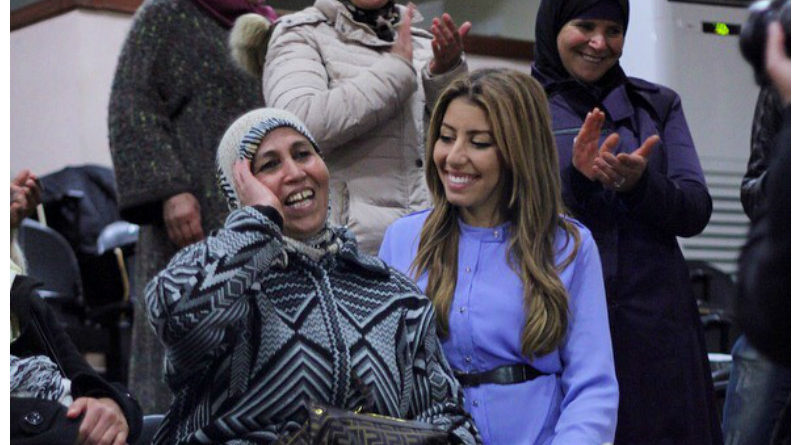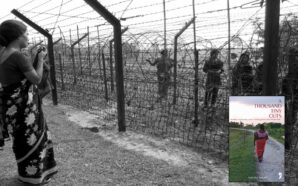Tell us a about the Association – when was it formed and the reason behind its creation?
The association of women for rural development was formed in 2013 with the aspiration to recognize and foster the leadership of rural women as a catalyst for development. In 2011, while I was still an undergraduate student, I had the opportunity to meet the local women of Adghagh Ain Mersa, an impoverished village in the Middle Atlas mountains in Morocco. This meeting was a turning point for me. These women who were often portrayed as poor, illiterate, and needy, amazed me with their energy, intelligence, determination, and vision or their village. Their leadership was undeniable. But they were disconnected from the expertise, contacts, information, and the funding that could help them play a bigger role for their community. It is based on this basic injustice and the will to demonstrate that leadership is not exclusive to an urban elite, that I have decided to create – joining forces with rural women – this association.
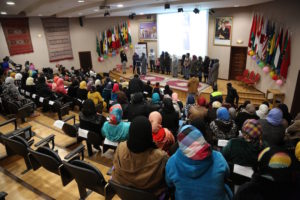 You are at the origin of the initiative “Empowering Women in the Atlas”, can you tell us what it is?
You are at the origin of the initiative “Empowering Women in the Atlas”, can you tell us what it is?
Empowering Women in the Atlas is one of the projects of our association. It is an initiative that invests in 100 women leaders and entrepreneurs from different villages of the Middle Atlas. The objective is to strengthen these women’s capacities and connect them with opportunities in order to confirm – to their communities and decision-makers – that rural women are key players in the sustainable development of the country.
On the one hand, this one-year long initiative will provide them with training and capacity-building workshops. On the other hand, it will accompany these women in the creation or optimization of income-generating projects that integrate the ecological dimension.
Today, in the aftermath of COP 22, this program confirms that rural women are actors of ecological change not only in theory, but it also gives them concrete means to undertake this role successfully. In my opinion, we can no longer invest in urban Morocco to give to rural Morocco, we must invest and integrate rural women now!
How did you get this idea? And is it easy to move from reflection to reality?
I had this idea thanks to the friendship I established with the women of Adghagh Ain Mersa, an impoverished village in the Middle Atlas, while I was still an undergraduate student. In the light of our many exchanges, I quickly realized that many conceptions we have about the rural world are false. The people I met have great potential. These women have everything, they know the problems of their villages, design relevant solutions, they have ideas, creativity, ambition, pragmatism and talent; But because they were born where they were born, they have no access to contacts, expertise, or funding that allows them to contribute in greater proportions. And I refuse that there is such a loss of potential for my country. I firmly believe that every human being and every citizen has a role to play, a potential to mobilize, regardless of geographical location and financial resources. For that I decided to go beyond these limits, to create bridges, and to invest in these women, who are often forgotten.
I am talking about women, but this is the case for other segments of the population. In April 2016, I launched an exchange program allowing 10 girls and boys who had never left the Middle Atlas mountains to get a passport for the first time and travel to Norway! This program allowed them to discover another country, another school system, boost their ambitions, stimulate their creativity and to follow a solar energy training that they will implement in their village. I want to create ruptures, and connect people with high potential no matter where they are. So the message is the same.
The American Middle East Peace Initiative (MEPI) supports this project to empower women, how do we convince such a partner, and what are the criteria or arguments to benefit from its assistance?
MEPI is a high quality partner. MEPI is certainly very selective, but its level of demand allows us to be as rigorous as possible and to remain focused on the realization of our objectives. When I heard about the funding opportunity of MEPI, I read the selection criteria, met the women of the region, and we started working! To gain the trust of MEPI, I had to sharpen my vision and propose a project that is adapted to the local realities while still being innovative. I therefore adopted a participatory approach to identify the concrete needs of the women of the villages, while linking them to the strategic axes of the country, in particular its environmental vision.
But I think what has convinced MEPI most is that it is a true project! It is a project based on a story of sincere friendship and that directly impacts the women in the selected villages. The rural women are themselves the project bearers and real actors rather than beneficiaries. Finally, it is a coherent project with a measurable impact
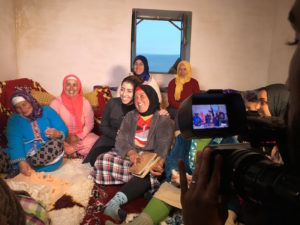 Now, how will this happen, to ensure these women’s socio-economic empowerment?
Now, how will this happen, to ensure these women’s socio-economic empowerment?
The empowerment of women is conditioned by their access to opportunities. It is not about transforming women, these women already have a potential and a vision. It is about connecting them with information, tools and resources, and creating economic opportunities to realize that potential.
Thus, Empowering Women in the Atlas, has selected 100 women based on their motivation and leadership within their villages but also their knowledge of local products and the feasibility of their income generating projects. The goal is to invest in women who have potential but who still need support and connections.
A first phase of the program- which already started – is to train these 100 women equip them and reinforce their capacities. The training sessions focus on key themes for the economic projects but also for the daily realities of these women. These include financial autonomy and project management (budget management, saving, investment), environmental education (conservation of natural resources, promotion of alternative practices, ecological dimension in production), Entrepreneurship (feasibility / profitability, choice of products), leadership and communication (public speaking, marketing, advertizement). A refined work is carried out by our team to design training workshops that are both interactive and adapted to the realities and needs of each woman. The workshops are being delivered in Darija (Moroccan dialect) and Tamazight (local/native language) and use diversified learning tools including videos, practical simulations, presentations, and even poetry. What matters most is that these women own these knowledge and find it useful and usable beyond the project itself. Hence, the women are not only acquiring practical skills but also gaining more confidence.
Then, starting from February, we are starting an integral accompanying work for the creation or optimization of cooperatives. This component includes equipment of their cooperatives, funding, and coaching. We will work both to enhance their know-how and local production and to provide them with the means to be innovative and pragmatic to opt for differentiated and marketable products. Support will also be given to the restructuring of cooperatives and to the diversification of products, integration of the ecological dimension, marketing and access to markets.
The program will end with a national event that raises awareness on the need to empower girls and women in rural areas. This event will also include the organization of a forum that connects rural women to online portals, e-businesses, or any innovative idea that can help them expose and sell their products. Hence, we would like to call any entity or individual who is interested to join our venture!
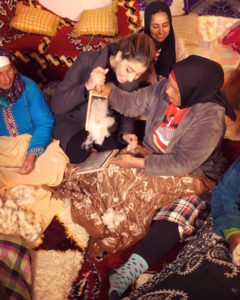 What are the main obstacles for women’s cooperatives to grow?
What are the main obstacles for women’s cooperatives to grow?
Quite frankly, this project was also born out of the multiplication of women’s cooperatives. There are a lot of cooperatives that are created with the intention of improving the economic conditions of women but how many are actually working? Many are not profitable either because the products are not demanded or because women are unable to access the markets. It is for this reason that this initiative also targets existing but not optimized cooperatives instead of reinventing the wheel and creating new cooperatives without guaranteeing their impact on women. Workshops are planned to allow women to be more innovative while valuing their authentic know-how. The workshops on the environment, the enthusiasm around the COP22 and the ecological dimension will also enable them to think differently (aromatic and medicinal products, alternatives to plastic bags) and attract new customers.
Moreover, one component of this initiative is to integrate these women into networks, and connect them with other projects, local and regional markets but above all online sales sites, and e-businesses. The aim is not only to give them access to new markets, but also to inspire and diversify their productions.
In conclusion, you who have worked with these women, what do you think is the priority of women in the landlocked / isolated regions?
The priority of women in isolated regions is the connection and opening-up to the world. These women have a lot of potential but they are isolated. Their openness to the world (information, contacts, funding, ideas) will allow them to have a greater impact and above all it will give them a voice and an existence. Indeed, the populations in the Middle Atlas mountains – especially women- have very rare opportunities to leave their villages and get access to opportunities because of the lack of financial means, transportation,… But technology can ensure their products are exposed and their ideas are echoed.
And then of course, it also goes through education. I met and worked with girls from the Middle Atlas. They go to school especially at the primary level, but in the face of all the difficulties (geography, climate, lack of means, linguistic barriers) it is very difficult for them to carry on. They have dreams, but they need support. Some girls are excellent at school, but excellence is not enough. They need support, they need opportunities, they need examples and role models, and that is also what we want to build for them through these 100 women.
Some of the women selected in this program, including Khadija were excellent at school, and they were out of school at the end of the primary level, and experiences that as a breakup that broke their hearts. Until today, while she is the mother of three girls, Khadija told me that while she sleeps, sometimes she dreams that she still is on the school bench …




